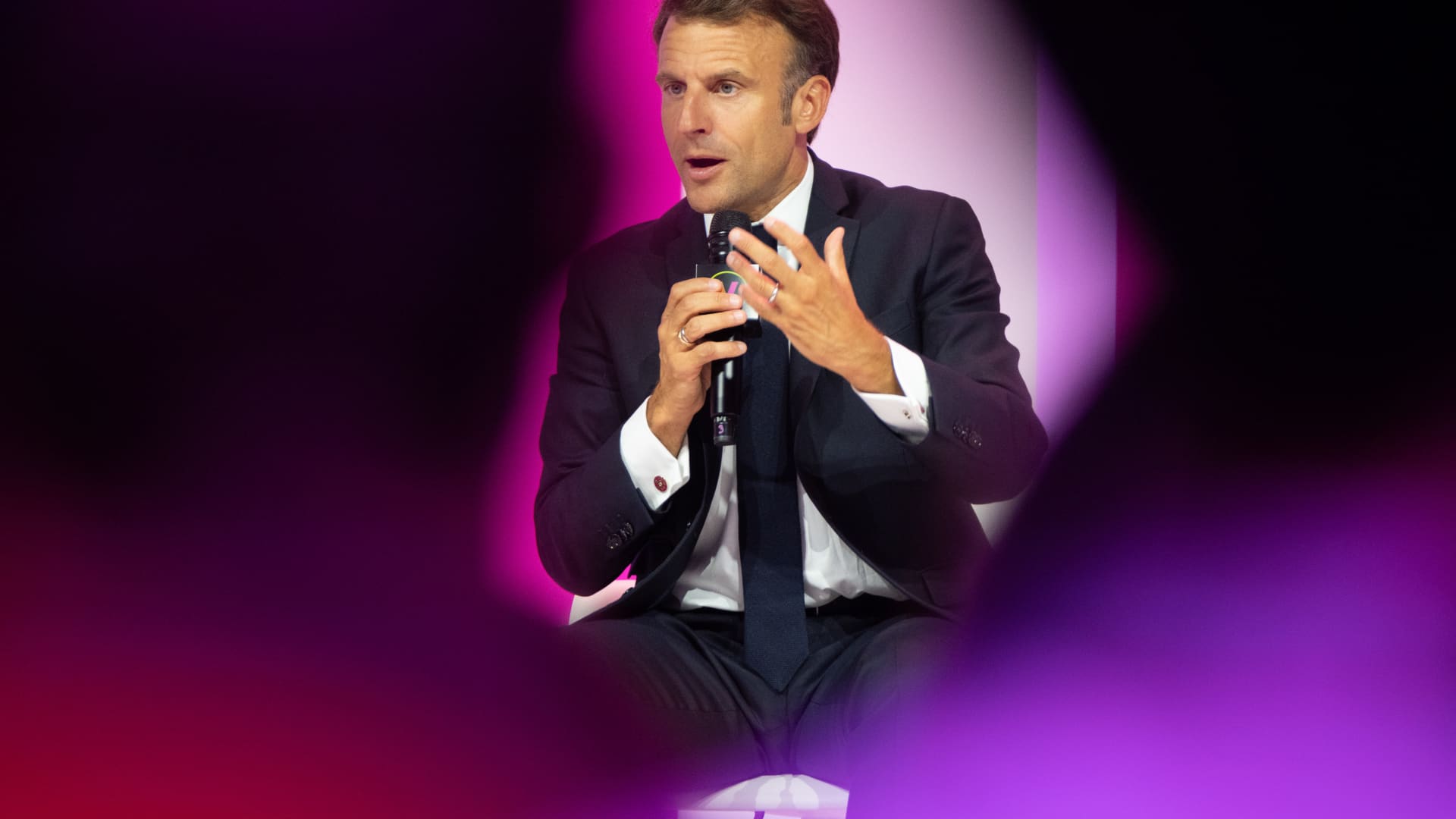
PARIS — France’s top politicians told CNBC they see the beginnings of global regulation on artificial intelligence coming by the end of this year, with French President Emmanuel Macron saying the country wants to work with the U.S. on rules around the fast-growing technology.
The comments come as interest in AI, sparked by the rapid growth of chatbot ChatGPT, continues to rise and governments around the world debate how the technology should be regulated.
But there is no global consensus on how AI should be managed and controlled with the U.S., China and European Union taking different approaches to rules around the tech. Any global regulatory framework would be a huge feat.
France has looked to position itself as the European hub for AI development even as the European Union, of which France is a member, pushes forward with first-of-its kind regulation.
Macron, Finance Minister Bruno Le Maire and Digital Minister Jean-Noel Barrot, all spoke to CNBC on Wednesday at the VivaTech conference in Paris, expressing a desire for global regulation on AI.
“From my point of view … I think we do need a regulation and all the players, even the U.S. players, agree with that. I think we need a global regulation,” Macron told CNBC’s Karen Tso on the sidelines of the event.
Barrot said that by the end of the year, “some of the core principles that we would like for the regulation of AI in G7 countries and like minded countries will start to emerge.”
The G7 includes countries such as France, Germany the U.S. and U.K. The countries agreed this year to set up a working group to look at issues that may arise from AI.
Macron said the G7 and the Organisation for Economic Co-operation and Development (OECD), which includes 38 countries, would be a “good platform” to develop global regulation.
Why now?
French concerns over EU A.I. law
France’s call for global AI regulation comes as the European Union closes in on passing an unprecedented law called the EU AI Act. The European Parliament on Wednesday approved the bloc’s landmark law, which looks to take a risk-based approach to regulating AI.
The latest amendments to the law include a tougher stance on so-called generative AI, the type of technology that underpins OpenAI’s ChatGPT, which allows systems to create images or respond in text to prompts. The regulation states generative AI developers will be required to submit their systems for review before releasing them commercially.
The law still needs approval from other EU bodies.
France, which has traditionally taken a pro-regulatory stance, has expressed concern that the EU law around AI has gone to far.
“My worry is that in the recent past few weeks, the EU Parliament … has taken a very sort of strong stance on AI regulation, using in some sense this AI act as a way to try and solve too many problems at once,” Barrot said on the provisions around generative AI.
U.S. rivalry and partnership in focus
Even as an EU-level law continues to work through the legislative process, France is pushing for regulations on a global scale and it sees the U.S. as a key ally.
“Competition is always a good thing. So we have a very close cooperation with the U.S. but we also want to get access to our own AI intelligence and companies,” Le Maire told CNBC on the sidelines of VivaTech.
“On regulation as well, I think this is absolutely vital to have an in-depth discussion with the American authorities on the best way of regulating artificial intelligence,” he added.
The U.S. has not yet come up with any kind of framework for AI regulation. But American companies are some of the most prominent in the space with OpenAI, the firm behind ChatGPT, as well as chipmaker Nvidia being the leaders in the space.
What do the French want in terms of regulation?
France’s top politicians who spoke to CNBC discussed their focus for AI regulation.
“We want to be sure that this is safe, unbiased … that the language models we have are not biased and that what is … forbidden in society is forbidden in this model. So we need some rules,” Macron said.
AI like ChatGPT is trained on huge amounts of data called large language models that allow it to understand human language and respond. But there are concerns that the data it is trained on could cause that system to inherit biases.
Macron also said that if you are watching a video or looking at a photo that has been created by AI, a user has a right to know.
Ultimately, French politicians are weighing up regulation that balances the need for protecting users of the technology without stifling innovation.
“What we want is a regulation that offers both protection for users … and that establishes trust, but that is also very flexible enough to allow for the development in the next few weeks, next few months in France and Europe,” Barrot said.




